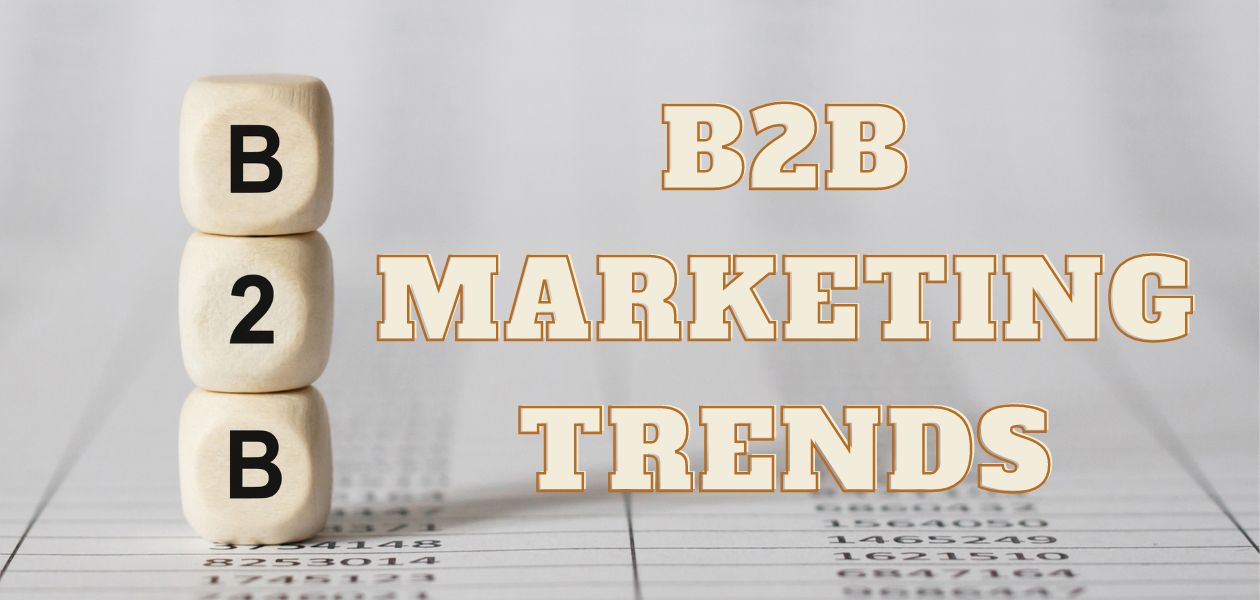
Introduction to B2B Marketing Trends
The world of B2B marketing is continuously evolving, as businesses adapt to changing customer expectations, emerging technologies, and new marketing strategies. As we progress into the future, what can we expect from B2B marketing trends? This article will discuss the most important trends that are shaping the B2B marketing landscape, providing insights and actionable tips for businesses looking to stay ahead of the competition. Let’s dive in!
The Rise of Account-Based Marketing (ABM)
Personalization in ABM
Account-Based Marketing (ABM) is a strategic approach that focuses on creating highly personalized experiences for targeted accounts. This trend is expected to gain even more traction in the coming years. Personalization in ABM is crucial, as it helps marketers tailor their messaging and offers to the specific needs and preferences of their target audience. It’s essential to invest in data-driven insights and technology to deliver personalized experiences that truly resonate with your target accounts.
Aligning Sales and Marketing Teams
ABM success relies heavily on the alignment of sales and marketing teams. These teams need to work closely together, share insights, and set common goals to drive revenue and growth effectively. A well-aligned sales and marketing team can help identify high-value accounts, create tailored marketing campaigns, and improve lead nurturing efforts, ultimately leading to a more efficient and successful B2B marketing strategy.
Emphasis on Customer Experience (CX)

B2B Customer Expectations
B2B buyers now have expectations similar to those of B2C customers, as they seek seamless, personalized experiences throughout the entire purchasing process. The emphasis on customer experience (CX) will continue to grow, and businesses must adapt their marketing strategies to meet these changing expectations.
Enhancing the Digital Experience
As the digital landscape continues to evolve, businesses must invest in enhancing their online presence and providing a seamless digital experience for their customers. This includes optimizing websites for mobile devices, offering user-friendly navigation, and providing personalized content and recommendations based on individual user behavior.
Content Marketing for B2B
Long-Form Content
Long-form content remains an essential part of B2B marketing strategies. In-depth, well-researched articles, whitepapers, and e-books can help establish your brand as an industry authority and provide valuable information to your target audience. Long-form content also has the added benefit of boosting SEO efforts, as search engines tend to favor comprehensive, high-quality content.
Interactive Content
Interactive content, such as quizzes, polls, and calculators, is gaining popularity in the B2B marketing space. These types of content not only engage users but also provide valuable insights about their preferences and needs. Incorporating interactive content into your marketing strategy can help increase lead generation, improve customer engagement, and foster a more personalized experience.
Artificial Intelligence (AI) and Automation

AI-driven Marketing Strategies
The adoption of AI in marketing is on the rise, as businesses leverage machine learning algorithms and data analytics to drive more targeted and effective marketing campaigns. AI-driven marketing strategies can help businesses better understand their customers, predict their needs, and optimize marketing efforts for maximum impact.
Chatbots and Virtual Assistants
Chatbots and virtual assistants have become indispensable tools for businesses, particularly in the realm of customer support and lead generation. These AI-powered tools can handle routine inquiries, qualify leads, and provide personalized recommendations, freeing up valuable time for your marketing and sales teams to focus on more strategic tasks.
Video Marketing
Live Streaming
Live streaming has emerged as a powerful marketing tool for B2B companies, allowing businesses to engage with their audience in real-time, showcase their expertise, and foster a sense of community. From product demonstrations to Q&A sessions, live streaming can help humanize your brand and create a more authentic connection with your target audience.
Webinars and Virtual Events
With the shift towards remote work and virtual collaboration, webinars and virtual events have become a staple in B2B marketing strategies. These online events offer an excellent opportunity to share knowledge, network with industry peers, and generate leads. As virtual events continue to gain popularity, businesses need to invest in high-quality production and engaging content to stand out from the competition.
Influencer Marketing
Influencer marketing, traditionally associated with B2C brands, is now making its mark in the B2B space. Collaborating with industry influencers and thought leaders can help amplify your brand message, reach a wider audience, and build credibility. To harness the power of influencer marketing, businesses should identify relevant influencers, establish clear goals, and create a mutually beneficial partnership.
Data-Driven Decision Making
Data-driven decision making has become crucial for B2B marketers, as businesses seek to make more informed decisions based on data insights. Leveraging data analytics tools and techniques can help identify trends, optimize marketing campaigns, and improve overall business performance. As data becomes more accessible, the importance of data-driven decision making will only continue to grow.
Sustainable and Ethical Marketing
In an increasingly conscious business landscape, B2B companies are shifting towards sustainable and ethical marketing practices. This includes promoting environmentally friendly products and services, advocating for social causes, and prioritizing transparency and accountability. Embracing sustainable and ethical marketing can help businesses not only appeal to increasingly discerning customers but also foster long-term brand loyalty.
Conclusion
As the B2B marketing landscape continues to evolve, businesses must stay ahead of the curve by embracing emerging trends and adapting their strategies accordingly. By focusing on account-based marketing, customer experience, content marketing, AI, video marketing, influencer marketing, data-driven decision making, and sustainable practices, B2B marketers can position themselves for success in the years to come. If you’re looking for a B2B marketing agency please contact us today.
FAQs
- What is account-based marketing finish this article (ABM)?
Account-based marketing (ABM) is a strategic approach that focuses on creating personalized marketing experiences for a select group of high-value target accounts. ABM aims to align sales and marketing efforts to drive revenue and growth effectively.
- Why is customer experience important in B2B marketing?
Customer experience (CX) has become increasingly important in B2B marketing as buyers now expect seamless, personalized experiences throughout the purchasing process. Focusing on CX can help businesses improve customer satisfaction, foster long-term relationships, and drive revenue growth.
- How can artificial intelligence (AI) be used in B2B marketing?
AI can be used in B2B marketing to drive more targeted and effective marketing campaigns, better understand customer needs, and optimize marketing efforts. AI-powered tools, such as chatbots and virtual assistants, can also help improve customer support and lead generation.
- What is the role of video marketing in B2B?
Video marketing has become a powerful tool in the B2B marketing landscape, helping businesses showcase their expertise, engage their audience, and create authentic connections. Live streaming, webinars, and virtual events are popular video marketing formats for B2B companies.
- Why is data-driven decision making important for B2B marketers?
Data-driven decision making allows B2B marketers to make more informed decisions based on data insights. Leveraging data analytics can help identify trends, optimize marketing campaigns, and improve overall business performance, leading to more successful marketing strategies.